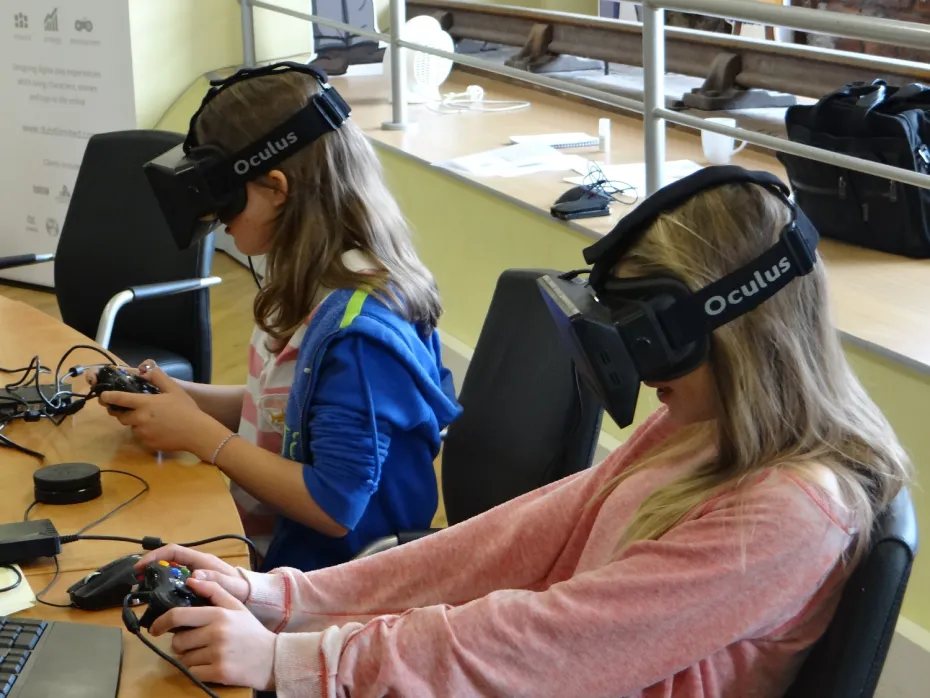The Rise of Virtual Reality in Entertainment: A Deep Dive into the Revolutionary Evolution of Immersive Experiences

Introduction
The Rise of Virtual Reality in Entertainment Virtual reality (VR) has emerged as a groundbreaking technology that is reshaping entertainment as we know it. With its ability to transport users to imaginary worlds, VR has become a powerful tool in various sectors. These sectors include gaming, movies, theme parks, and live events. This article delves into the rapid rise of virtual reality in the entertainment industry, exploring its evolution, impact, and future possibilities.
1. The birth of virtual reality.
The concept of virtual reality dates back to the mid-20th century, but it wasn’t until the late 20th and early 21st centuries that technology caught up with the imagination. This section explores the early pioneers of VR, the first VR devices, and their limited applications in the entertainment sector.
2. VR in Gaming: Beyond Reality
Gaming has been at the forefront of VR integration, offering players an unparalleled immersive experience. This section discusses VR gaming evolution, from basic simulations to complex, interactive virtual worlds. It also explores how VR enhances gameplay, storytelling, and player engagement.
3. Virtual Reality in Movies and Television
VR technology has paved the way for innovative storytelling in movies and television. Filmmakers and content creators have started experimenting with VR, creating immersive narratives that blur the line between fiction and reality. This section examines VR’s impact on the film industry, including 360-degree movies and VR-enhanced cinema experiences.
4. VR in theme parks and attractions
Theme parks have embraced VR technology to enhance visitor experiences. From VR-enhanced rides to immersive themed attractions, VR has transformed amusement parks. This section explores how theme parks have integrated VR and augmented reality (AR) to create unforgettable adventures for visitors.
5. Live events and Virtual Reality
VR has also revolutionized live events, such as concerts, sports matches, and conferences. This section discusses the concept of virtual live events, where attendees can participate in real-time from their homes. It explores the challenges faced and VR opportunities in the events industry.
6. Challenges and ethical considerations
While VR has immense potential, it also comes with challenges and ethical considerations. This section delves into issues such as motion sickness, VR addiction, and immersive experiences’ ethical implications. It discusses how the industry is addressing these challenges to ensure VR technology safety and responsibility.
7. The Future of Virtual Reality in Entertainment
What does the future hold for VR in the entertainment industry? This section explores upcoming VR technologies, such as haptic feedback systems and brain-computer interfaces, and their potential impact on entertainment. It also discusses the role of artificial intelligence (AI) in shaping personalized VR experiences and VR possibilities in education and healthcare.
Conclusion
The rise of virtual reality in entertainment signifies a paradigm shift in how we consume and interact with content. As technology continues to advance, VR is poised to become an even more integral part of our entertainment experiences, offering limitless possibilities for creativity and innovation. The immersive journey that VR provides is not just a trend; it’s a transformative force that is reshaping the future of entertainment as we know it.

Leave a Comment